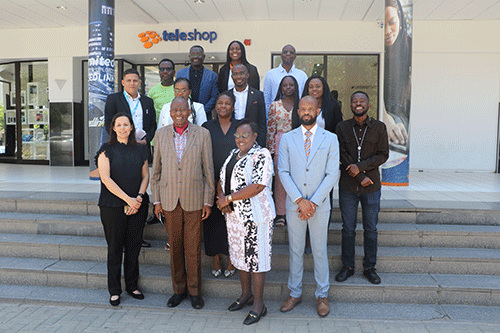George Sanzila
Telecom Namibia has called for the amendment to the Second-Hand Goods Act 23 of 1998 to curtail theft and vandalism of telecommunications infrastructure.
Telecom Namibia chief executive officer Stanley Shanapinda said theft and damage to infrastructure is hampering the company’s operations, resulting in the interruption of service delivery and loss of revenue.
He said this during a recent familiarisation tour of Telecom Namibia by a delegation under National Assembly Speaker, Peter Katjavivi.
Shanapinda, who described the theft of copper cables and other critical infrastructure as a national crisis, argued that the regulation in its current form was not punitive enough to deter would-be perpetrators, especially considering the cost of the crimes to both the company and the public in general.
“Our infrastructure is widespread and accessible to the public. The Second-Hand Goods Act of 1998 is left to the police who have the discretion to issue and withdraw trading certificates to scrap dealers, and to inspect the premises. Prosecution under this Act is not punitive enough, considering the costs involved. Cases are thrown out or withdrawn due to a lack of evidence, as there is limited understanding of the impact of the crime. Bail is set so low between N$500 to N$1 000,” he stated.
Statistics provided during the briefing show that the company has so far reported a total number of 45 cases of copper theft to the police since 2022.
The Khomas region accounts for the biggest number at 22, followed by the Oshana and Omaheke regions with six cases each, and Hardap, //Kharas and Erongo with five, four and two cases, respectively.
The company revealed that it had to spend over N$2 million to replace the stolen copper cable infrastructure to restore network availability. Measures such as calls to the public to act as a watchdog and appeals to scrapmetal dealers to stop buying stolen copper wires have all fallen on deaf ears, Shanapinda stated.
Katjavivi, on his part, commended Telecom for its efforts in the transition to digital telecommunication in Namibia in line with the fourth industrial revolution, through its turnaround strategy despite the impediments.
He urged the management of the company to engage the Parliamentary Standing Committee on Information, Communication, Technology and Innovation on how the challenge of copper cable theft and vandalism of ICT infrastructure could be resolved through legislation.
Katjavivi was in the company of the deputy chairperson of the committee, Maria Elago.
* George Sanzila works in the Division, Research, Information, Publications and Editorial Services at the National Assembly


